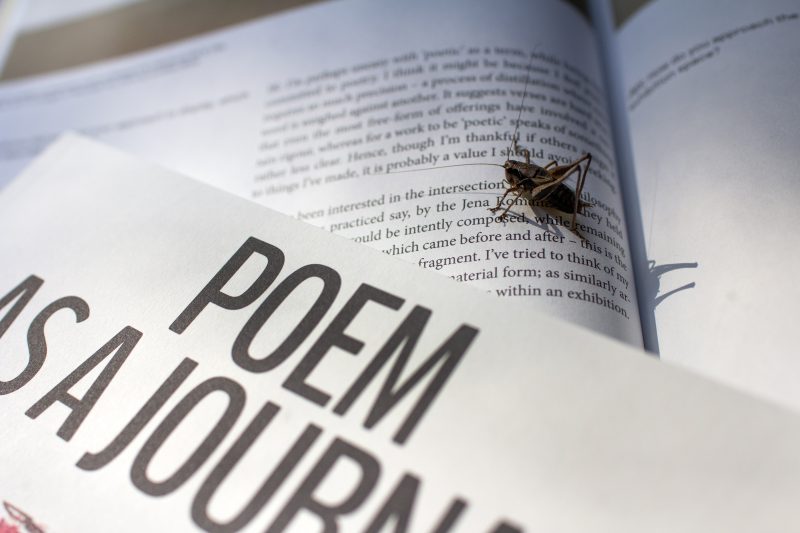The new issue of Poem as a Journal explores what place poetry occupies in our lives

Photo by Gedimina Šalkauskaitė
The Lithuanian Culture Institute has published the new issue of the culture magazine * as a Journal, Poem as a Journal, dedicated to poetry. However, this issue is not concerned with poetry as a literary genre but rather examines poetry as a multifaceted phenomenon. This is the seventh issue of the magazine, published every six months.
The guest editor of Poem as a Journal is Jean-Max Colard, art critic, curator, writer, and head of the Words Department of the National Centre for Art and Culture Georges Pompidou.
“It is a great pleasure and honour to be the guest editor of the new Poem as a Journal. I see this magazine issue as a kind of research in which we explore what place poetry occupies today in contemporary creative life and our lives more broadly. I am amazed by the presence of poetry, especially among the younger generation, on social media and especially in art. So my collaborator Louise Brunner and I tried to play with the title of this magazine and compare the poem form with other fields: poem as a magazine, as a film, as an exhibition, as sex, as oneself. But not as a war,” said Jean-Max Colard.
Alongside the core editor, Kotryna Lingienė, Poem as a Journal was created by 35 artists and poets from Lithuania, France, Switzerland, Ukraine, Germany, and the USA.
“Inviting a curator from another country was an ambitious decision, even after our previous international experience when Damien Lentini, an Australian-born curator working in Germany, presented a sensitive and detailed overview of our country’s sound scene in the Soundscapes as a Journal issue. This time it was different, however: Jean-Max Collard represents one of the world’s greatest cultures, whose influence reaches far and wide, and this is reflected in the content of the magazine he and his colleague Louise Brunner compiled. I was interested to see which Lithuanian creators the French team would choose to present, and their picks delighted me. This non-poetically poetic issue also includes Ukrainian voices, for which I am sincerely grateful to the poet Marius Burokas,” said Kotryna Lingienė.
The issue was designed by Miglė Rudaitytė-Černiauskienė, founder of the BOY design studio. According to her, the editors’ invitation to consider a poem not only as text but also as a visual object encouraged her to experiment with its design.
“I started by deconstructing a poem – as an object – and that, for me, brought out several elements: concision, silent pauses, rhyme turning into rhythm, repetition creating sequences. Although this may sound like an old truth, one conclusion stayed with me: a poem is an image, you just need to think about it longer and let your eyes stay with it, to notice what is happening between the lines to see things that are a little more hidden. I hope that this design will adequately reflect the primary and most important thing – the content of the magazine – and will help raise the art of poetry a little higher – among other, perhaps louder celebrated forms of art,” shared Miglė Rudaitytė-Černiauskienė.
Each issue of the magazine, currently in its fourth year, is published under a slightly changed title, according to the topic explored. Readers have so far been invited to discover forests, space, soundscapes, corporeality, and memory, among other themes.
The new issue can be purchased in Lithuania on the website www.asajournal.lt, as well as in the MO museum bookstore. The magazine is distributed abroad by Antenne Books. For more outlets, please visit www.asajournal.lt.
The magazine * as a Journal, published in English by the Lithuanian Culture Institute since 2021, is intended for readers around the world interested in culture. * as a Journal opens an exclusive space for cultural cooperation, where artists, curators and researchers from Lithuania and abroad meet to reflect on current topics, inviting readers to ponder them from unexpected perspectives.